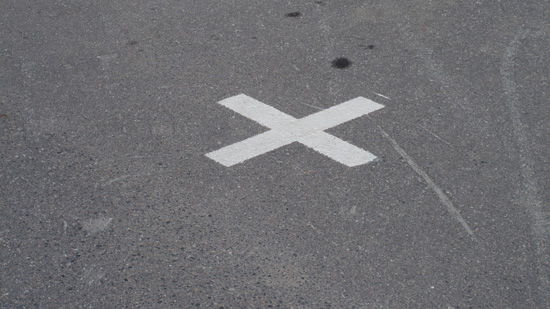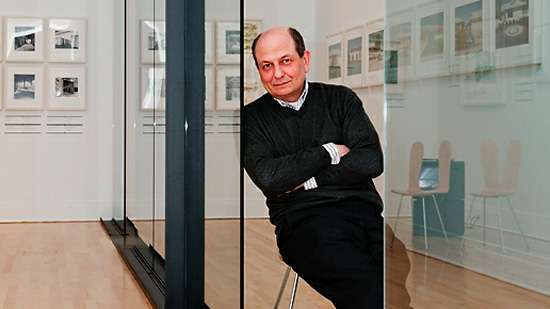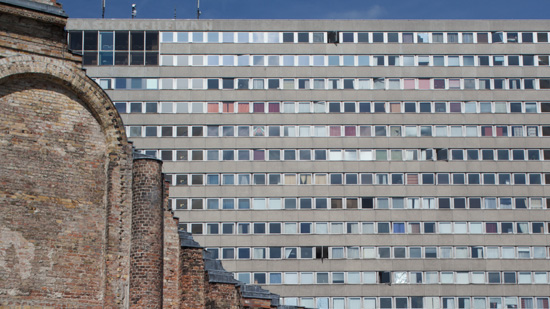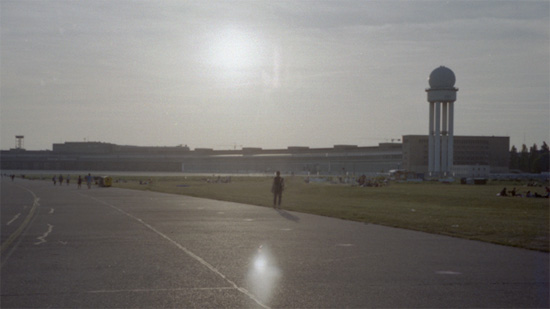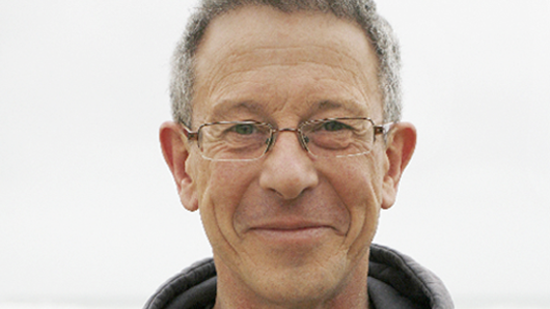Tell Your City: Lectures on Narrating Climate Change Tell Your City: Lectures on Narrating Climate Change
Friday, June 29, 2012, 3:30 pm–6:30 pm
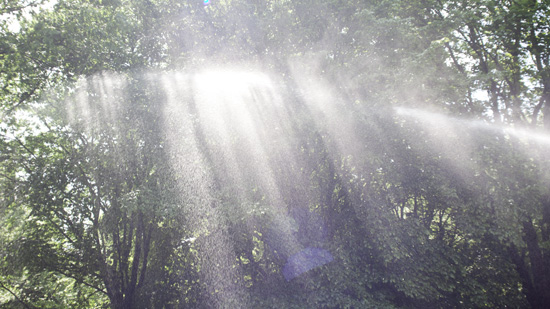
How can you define and narrate the abstract issue of urban climate change, particularly concerning mobility? The various lectures this afternoon are linked to that question.
First, members of the Climate Media Factory will outline their interdisciplinary research project that practically investigates the communication of climate change. Patrick Möller and Dorothea Martin from Imaginary Friends, a cross-media storytelling network in Berlin, explain why we can approach this issue, in cities particularly, with a collaborative and location-based storytelling.
The second part will focus on climate change, cities, and mobility. Matthias Lüdeke, climate scientist from Potsdam Institute for Climate Impact Research (PIK), will present information on cities’ role in climate change, with a look at Berlin and Indian megacities like Mumbai. Wolfgang Schade, Coordinator of Business Unit Transportation Systems at Fraunhofer Institute for Systems and Innovation Research ISI Karlsruhe, will discuss how urban mobility can change in order to reduce greenhouse gases and make cities more liveable.
The lectures are presented by the Climate Media Factory, an interdisciplinary media lab run by the Film and Television University “Konrad Wolf” Potsdam-Babelsberg (HFF) and the Potsdam Institute for Climate Impact Research (PIK). Climate scientists, authors, producers and media scholars work together to develop media products that address the issues of climate change and sustainability and show courses of actions for each individual by using audiovisual media. Thanks to this unique combination of resources, the Climate Media Factory aims to create media formats and products that reach a wide audience and make a difference.
See Tell Your City and Climate Media Factory for more information on how to participate in the “Tell Your City” project.This program is in German.
Photo: by Lena Grass, 2012
Wie kann man das abstrakte Thema Urbaner Klimawandel vor allem im Bezug auf Mobilität definieren und zusammenfassen? Die verschiedenen Gespräche am heutigen Nachmittag befassen sich mit dieser Frage.
Zunächst werden Mitglieder der Climate Media Factory ihr interdisziplinäres Forschungsprojekt umreißen, welches praktisch die Kommunikation von Klimawandel untersucht. Patrick Möller und Dorothea Martin von Imaginary Friends, einem Cross Media Geschichten-Erzähl-Netzwerk in Berlin, erläutern warum wir besonders in Städten diesem Thema mit gemeinschaftlichem und örtlich basierendem Geschichtenerzählen begegnen können.
Der zweite Teil wird sich auf Klimawandel, Städte und Mobilität konzentrieren. Matthias Lüdeke ist Klimaforscher am Potsdam-Institut für Klimafolgenforschung (PIK) und wird Informationen über die Rolle von Städten am Klimawandel mit einem Blick auf Berlin und indische Megastädte wie Mumbai präsentieren. Wolfgang Schade ist Leiter des Geschäftsfeldes Verkehrssysteme am Fraunhofer-Institut für System- und Innovationsforschung ISI in Karlsruhe und wird erläutern, wie urbane Mobilität verändert werden kann, um Treibhausgase zu reduzieren und Städte lebenswerter zu machen.
Die Gesprächsrunden werden durch die Climate Media Factory präsentiert. Die Climate Media Factory ist ein interdisziplinäres Medien Lab der Hochschule für Film und Fernsehen „Konrad Wolf“ Potsdam-Babelsberg (HFF) und des Potsdam-Instituts für Klimafolgenforschung (PIK). Klimaforscher, Schriftsteller, Produzenten und Medienwissenschaftler arbeiten zusammen mit audiovisuellen Medien, um Medienprodukte zu entwickeln, die die Fragen zu Klimawandel und Nachhaltigkeit behandeln und Vorgehensweisen für jeden einzelnen aufzeigen. Dank dieser einzigartigen Zusammenstellung von Ressourcen zielt die Climate Media Factory darauf ab, Medienformate und -produkte zu schaffen, die ein weites Publikum erreichen und etwas bewegen.
Sehen Sie Tell Your City und Climate Media Factory für weitere Informationen darüber, wie Sie am “Tell Your City” Projekt teilnehmen können.
Diese Veranstaltung findet in deutscher Sprache statt.
Foto: von Lena Grass, 2012

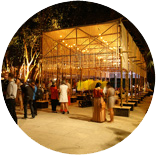
.jpg)
